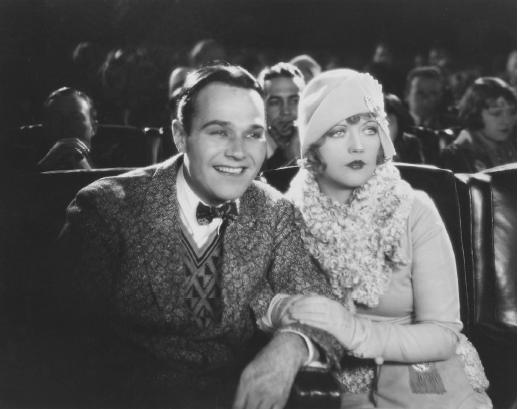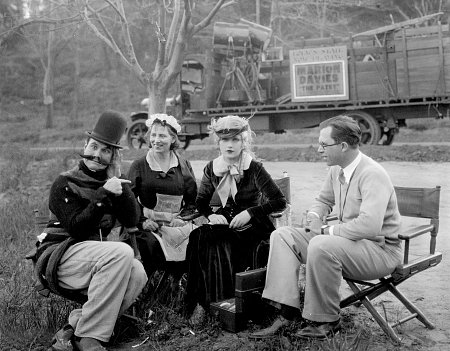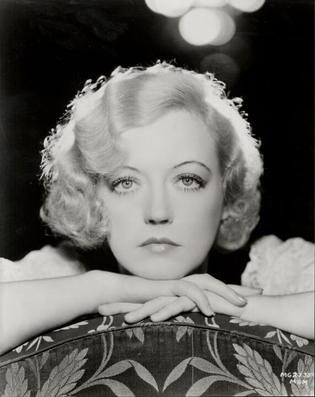Show
People, a silent film directed by King Vidor, is one of those rarest and most delicious of movie confections
— a romantic comedy that's truly funny, truly zany and also
emotionally affecting. It was my first encounter with the work of
Marion Davies and I was curious about her for all the usual reasons.
Welles's
caricature of Davies as Susan Alexander in Citizen Kane is so
effective and so devastating that most subsequent commentators have
gone out of their way to point out that it was unfair — that Davies
was a truly talented woman. I wondered how much of this was merely
apology for a patently ungallant attack and how much a considered
judgement.
For
the first few scenes in Show People I wasn't really sure. Davies is
certainly beautiful and charming, but she has a kind of eerie calm for
a movie star, an unwillingness to reach out to the audience. She's
willing to mug goodnaturedly in the service of the film, and seems like
a regular kid, but I wondered if her reserve was the assurance of a
confident artist or the smugness of a hostess in a castle. Were the
goofy faces she pulled just genial parlor tricks?
Then
came the wonderful scene where she makes her debut in a slapstick movie
and gets hit unexpectedly with a blast of seltzer water in the face.
Her affronted reaction is effective comically and dramatically as well
— she looks truly humiliated and bewildered. And then, retreating
behind the flats, she falls apart and your heart just goes out to her,
as does the heart of Billy, her romantic leading man. When he carefully
re-does her make-up and re-applies her lipstick, we start to care about
him, and about the couple. It's the heart of the movie.

William
Haines is an effective leading man in this very light role, though I
found his mugging, whether slightly manic or slightly fey, unappealing.
It's called for by the part, but a star in a romantic comedy has to be
able to make a complete idiot of himself and still be loveable, and
Haines wasn't quite, for me. What saves the situation is Davies. When
she becomes an insufferable star she launches into her famous
impersonation of Gloria Swanson, which is dead-on, hilarious, and
occasionally downright demented. She doesn't just strike poses, she
also from time to time starts pursing her lips so fast that the
behavior reads as borderline psychotic. The goofiness of Peggy Pepper
which keeps busting out of Patricia Pepoire echoes Billy's goofiness
and reminds us that they belong together.

It's
odd to find in this genial portrait of Hollywood filmmaking in 1927 a
nostalgia already present for Hollywood filmmaking in the Teens, the
days of knockabout improvised comedy. The collision of the two location
casts, when a Sennet-like troupe passes like a dream through the
already dreamlike parody set of a high-class Pepoire vehicle, out in
the sunny California countryside, has a Bergmanesque, melancholy edge
to it. The Hollywood past has already become surreal, even within the
surreal arena of filmmaking itself.
This
episode is one of the few breathtaking bits of visual poetry that
remind us we're watching a film by the man who directed The Big
Parade — though there are shrewd bits of plastic calculation
throughout. The first shot we see of Peggy Pepper's slapstick debut at
the screening of her first film is a furious tracking shot looking back
at Peggy running madly, pursued by a car-full of clowns. It's an
exhilarating evocation of the spirit of early film comedy, with all its
excitement and joy.
By the
end of the film, I admired Davies enormously, and liked her, too —
she's good company on film, as apparently she was in life. But I still
felt some element of reserve — between her and Haines, and her and the
audience. There was no smugness in it, more like a dimension of
vulnerability she was willing to admit but not quite willing to share.
It gave her a mysterious resonance, partly alluring and partly sad. But
perhaps it's just the ghost of Susan Alexander I was sensing, the
gossip and suspicion and envy out of which Welles created his malicious
portrait, and which Davies had to live with long before Kane. It's a
phantom which poor Marion Davies will never really be able to shake.


Pingback: The Science of Romantic Comedy | Silver Screenings